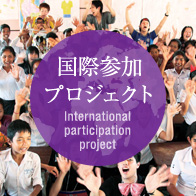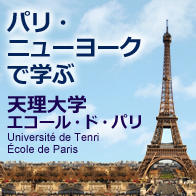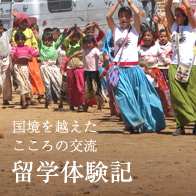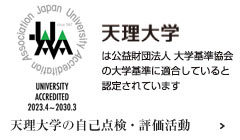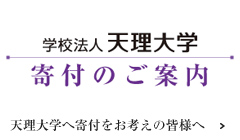カリキュラムポリシー
文学部
国文学、国語学、歴史学、考古学、民俗学に関する各学科に共通する知識の修得を基礎とし、年次の進級とともに学科・専攻の専門性を深めていける講義・演習・実習の科目を配置しています。卒業論文の作成により各領域における課題を認識し解決する力を修得することができるカリキュラムを編成しています。
The classes are arranged so that students can start out by enrolling in the basic classes that cover common knowledge among the studies of Japanese language, literature, history, archaeology, and folklore, and as they promote, they can deepen their expertise in their department and major through lectures, seminars, and practicum. The curriculum is organized so that students will acquire the ability to recognize problems in their respective fields and solve them through working on their Graduation Thesis.
国文学国語学科
国文学および国語学の専門分野における知識を深め、日本の文学や言語の基礎を学び、各時代分野の内容を深化させた科目を体系的に配置しています。
1年次では基礎演習および概論、2年次では発展科目、3年次と4年次では各自が選択した時代分野に応じた科目を履修する編成となっています。さらに学修の総まとめとしての卒業論文作成に向けた演習を3年次と4年次に配置したカリキュラムを編成しています。
1年次では基礎演習および概論、2年次では発展科目、3年次と4年次では各自が選択した時代分野に応じた科目を履修する編成となっています。さらに学修の総まとめとしての卒業論文作成に向けた演習を3年次と4年次に配置したカリキュラムを編成しています。
We systematically distributes subjects that allow students to deepen their knowledge in the specialized field of Japanese language and literature, study the basics of Japanese language and literature, and study the deepened contents of each era and field.
The classes are organized so that during the first year, students have basic seminars and introductory classes. During the second year, they will enroll in advanced subjects. During the third and fourth years, students will choose subjects related to their preferred era. Further, during the third and fourth year, the curriculum is organized so that students can take seminars that cover the overall studies, which will prepare them to write their Graduation Thesis.
The classes are organized so that during the first year, students have basic seminars and introductory classes. During the second year, they will enroll in advanced subjects. During the third and fourth years, students will choose subjects related to their preferred era. Further, during the third and fourth year, the curriculum is organized so that students can take seminars that cover the overall studies, which will prepare them to write their Graduation Thesis.
歴史文化学科(2019年度以降入学者)
歴史学、考古学・民俗学に関する専門的な知識を身につける科目を体系的に配置しています。
1年次では基礎演習および概論、2年次では歴史学研究コースと考古学・民俗学研究コースの2コースに分かれ、それぞれの基礎科目、3年次と4年次では各自が選択した時代と地域に応じた科目を履修する編成となっています。さらに学修の総まとめとしての卒業論文作成に向けた演習を3年次と4年次に配置したカリキュラムを編成しています。
We systematically distribute subjects that allow students to acquire specialized knowledge related to the studies of history, archaeology, and folklore.
The classes are organized so that during the first year, students have basic seminars and introductory classes. In the second year, students will choose to enroll either in the Historiography or the Archaeology and Folklore Course, and take basic subjects respectively. During the third and fourth years, students will choose subjects related to their preferred era and region. Further, during the third and fourth year, the curriculum is organized so that students can take seminars that cover the overall studies, which will prepare them to write their Graduation Thesis.
The classes are organized so that during the first year, students have basic seminars and introductory classes. In the second year, students will choose to enroll either in the Historiography or the Archaeology and Folklore Course, and take basic subjects respectively. During the third and fourth years, students will choose subjects related to their preferred era and region. Further, during the third and fourth year, the curriculum is organized so that students can take seminars that cover the overall studies, which will prepare them to write their Graduation Thesis.
(歴史学研究コース)
2年次以降の「研究」「講読」で知識を深め、自ら史料を読む力を養成します。また2年次の「歴史学研究入門」、3年次の「演習」、4年次の「卒業論文演習」によって、自ら課題を立て調査を計画する構想力、調査結果を分析・考察する論理的思考力、考察の結果として得た知見を伝える表現力、討議し考えを深めるコミュニケーション力を高め、段階的に卒業論文が作成できる能力を身につけます。
From the second year on, you will develop your skills to read historical records by deepening your knowledge through classes like “Study in …” and “Readings in …” Also, through your second year class “Introduction to Historiography,” third year class “Seminar in …,” and fourth year class “Seminar in writing Graduation Thesis,” you will acquire many important skills as follows:
- Conceptual ability, which allows you to establish a problem and solve it.
- Logical thinking, which allows you to analyze and examine your research results.
- Expression skills, which allows you to convey the knowledge you gained through your study.
- Communication skills, which allows you to hold discussions and deepen your thinking.
These skills will allow you to step by step acquire the ability to write your graduation thesis.
(考古学・民俗学研究コース)
講義科目によって考古学・民俗学の専門知識を系統立てて学び、実習科目によって発掘調査・民俗調査の専門技術を習得し、資料を収集・分析、研究成果を引き出す力を身につけます。また演習科目によって、自ら課題を発見し、研究計画を立て調査を実施する構想力、その結果を分析・考察する思考力、また自らの知見をわかりやすくまとめる表現力、議論が展開できるコミュニケーション能力を高めます。2年次に「考古学・民俗学研究入門」、3年次に「考古学・民俗学課題研究」、4年次に「卒業論文演習」を配し、講義・実習科目とあわせ段階を追って卒業論文の執筆を進められるようにします。
Through the lectures, you will systematically study the expertise of archaeology and folklore. Through practical training, on the other hand, you will acquire specialized techniques to excavate and research folklore, collect and analyze documents, and learn how to bring out the potential of your research findings. Also, through practicum, you will improve your conceptual ability, which allows you to discover a problem, plan a research project, and carry it out. You will also improve your logical thinking, which allows you to study and analyze your research results, your expression skills, which allows you to organize your thoughts, and your communication skills, which allows you to expand your discussions. During your second year, you will study “Introduction to Archaeology and Folklore Studies.” In your third year, you will study “Thematic Study of Archaeology and Folklore Studies.” In your fourth year, through your “Graduation Thesis Practicum,” you will set up your graduation thesis and start writing it gradually, while you are attending lectures and having practical training.
歴史文化学科(2018年度入学者まで)
歴史文化学科の共通科目においては、歴史学、考古学、民俗学に関する基礎的な知識や研究方法を学び、広い視野と見識をもって研究を進めていけるようにします。また各専攻の専門科目においては、専攻のカリキュラムに従って専門能力を高めていきます。
In the common subjects of the Department of History and Culture Studies, students will learn basic knowledge and research methods on historical studies, archeology, folklore studies, and to conduct research with a broad perspective and insight. In special subjects of each major, we will enhance students’ professional abilities according to the curriculum of each major.
歴史学専攻(2018年度入学者まで)
専門科目においては、1年次の「要説」で日本と世界の歴史に関する基礎知識を身につけ、2年次以降の「研究」「講読」で知識を深め、自ら史料を読む力を養成します。また演習科目(1年次の「歴史学基礎演習」、2年次の「歴史学研究入門」、3年次の「演習」、4年次の「卒業論文演習」)によって、自ら課題を立て調査を計画する構想力、調査結果を分析・考察する論理的思考力、考察の結果として得た知見を伝える表現力・討議し考えを深めるコミュニケーション力を高め、段階的に卒業論文が作成できる能力を身につけます。
また、「社会、地理歴史教育職員免許状」の取得を考慮したカリキュラム編成を合わせて行っています。
In special subjects, students will acquire the basic knowledge on the history of Japan and the world in the “Summary” of She freshman year, develop knowledge on “Research” and “Subscription” segments after the sophomore year, and will train in the ability to read the materials themselves. In addition, through the exercise subjects (the “Basic exercise of historical studies” in the freshman year, “Introduction to historical studies” in the sophomore year, “Exercises” in the junior year, and the “Graduation thesis exercises” in the senior year) students will develop the ability to plan investigations, logical thinking ability to analyze and consider results of investigations, ability to express knowledge obtained as a result of consideration, communication skills gained through discussion to deepen thinking, and ability to create graduation thesis in stages.
We also organize the curriculum so that it takes into consideration the acquisition of “Social, Geographical History School Teacher’s License.
考古学・民俗学専攻(2018年度入学者まで)
専門科目においては、講義科目によって考古学・民俗学の専門知識を系統立てて学び、実習科目によって発掘調査、民俗調査の専門技術を習得し、資料を収集・分析、研究成果を引き出す力を身につけます。また演習科目によって、自ら課題を発見し、研究計画を立て調査を実施する構想力、その結果を分析・考察する思考力、また自らの知見をわかりやすくまとめる表現力、議論が展開できるコミュニケーション能力を高めます。1年次に「考古学・民俗学基礎演習」、2年次に「考古学・民俗学研究入門」、3年次に「考古学・民俗学課題研究」、4年次に「卒業論文演習」を配し、講義・実習科目とあわせ段階を追って卒業論文の執筆を進められるようにします。
また、「社会、地理歴史教育職員免許状」および「博物館学芸員資格」の取得を考慮したカリキュラム編成を合わせて行っています。
In special subjects, students systematically learn an expertise of archeology and folklore studies by lecture subjects and master the expertise of excavation survey and folklore survey by practical subjects, collecting and analyzing materials, as well as drawing out research results. Also, depending on the exercise subjects, students will have the ability to discover issues themselves, develop research plans and conduct surveys, thinking ability to analyze/consider the results, expression skills to comprehend their own knowledge, and communication skills to develop arguments. Students will take the “Archeology and folklore studies basic exercises” in the freshman year, “Archeology and folklore studies research introduction” in the sophomore year, “Archeology and folklore studies subject research” in the junior year, and “Graduation thesis exercises” in the senior year; the curriculum is arranged so that lectures and practical subjects are followed step by step so students can advance to the writing of their graduation thesis.
We also organize the curriculum so that it takes into consideration the acquisition of “Social, Geographical History School Teacher’s License” and “museum curator qualification.”
